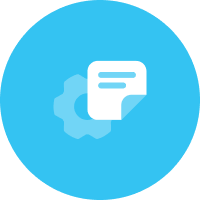Marketing Automation Strategies
Marketing automation refers to the process of leveraging technology to optimize marketing efforts through automated processes across multiple marketing channels. Automation allows your marketing team to streamline efficiencies, gain better data insights, speed up the sales cycle and ultimately, generate more revenue.
With marketing automation, new leads are introduced into your marketing funnel and nurtured to become sales-ready prospects. At every point of the customer journey, your brand should be able to track your prospective customers’ brand interactions (across social media, web properties, apps, email, and SMS), and deliver relevant, personalized content that meets them exactly where they are in their journey.
In order to begin using marketing automation, you need a best-in-class marketing automation platform, like Iterable. Here are some guidelines for getting started.
Centralize Your Marketing Automation Data
Before you can begin a successful marketing automation campaign, you need to ensure that all of your marketing data is centralized in one location so that you can auto-populate user profiles with information to help you segment your users and personalize your content. The data should be securely encrypted, but easily accessible to anyone in your marketing organization who requires access, enabling them to use real-time and historical user information to build effective campaigns.
That data should include a combination of user attributes (i.e., user location or age), event data (how users engage with your brand) and metadata (attributes like the shoe size a user purchases). By drilling down on this data, you’ll be able to segment your user base on an individualized level to deliver highly personalized content in line with their interests and preferences.
Build Your Templates
When using marketing automation, it’s important to set up templates for your marketing campaigns. These templates may include some standard content like a confirmation email, but will incorporate personalized variables that will dynamically change based on the user’s behavior or customer profile.
Profile attributes might include the user’s name, location and known shopping preferences or purchase history. Behavior-based variables focus on specific actions, such as opening an email link or visiting a specific product page.
Because marketing automation can run all of your marketing channels, your templates too should be made to expedite the cross-channel campaign creation process..Your marketing automation campaigns should incorporate email, SMS, web notifications and in-app notifications, leveraging opportunities to engage with your customer across multiple channels based on their action—or lack of action—in response to each message.
For example, you might send an email promotion for your latest sale. If a customer clicks on the link and makes a purchase, your marketing automation platform can trigger a post-sale follow-up sequence. If the customer doesn’t click on the email link, however, you might send an SMS message a day later with content related to the same promotion. For a post-sale campaign such as this, templates with personalized handlebar logic can be used to create a more seamless, individualized experience.
Segmenting Your Users
In order to send the right content to the right user at the right time, you need to segment your user base. There are many different criteria that can be used for segmentation. The most effective marketing automation campaigns will incorporate multiple forms of segmenting to develop highly personalized campaigns.
Here are several ways to segment your audience:
Demographic Information
If you have customer profile data available, you can segment users based on this data, using factors such as job title, household income, family size or geography. You can also use this to determine the best times of day to message them, based on their time zones. And, if you’ve asked your customers to fill out user surveys, you’ll be able to personalize your messaging more effectively by promoting the specific brands or types of products each customer likes.
Lifecycle Stage
Where is the user in the buying cycle? Depending on your product or service, the buying cycle may be long. For instance, users who are new to your brand and in the education phase may be well-served by educational content, while those who’ve actually clicked on your product pages may respond better to promotional offers or requests to book a call.
Behavior
You can also use real-time behavioral triggers to segment your audience and develop personalized cross-channel marketing campaigns for each user. For example, if a user adds a specific product to their online wish list, you can follow up with an email and SMS campaign that offers a special limited-time offer on that product.
Marketing Automation Summary
To run a highly effective marketing automation campaign, segmentation at a granular level helps identify your core audience(s) and how to interact with each customer. You’ll be able to reach your users with highly personalized messaging based on their customer profile data, their stage in the buyer’s journey and their real-time behavior. Plus you can segment users across all of the channels that they use, including email, SMS, web push, in-app messaging and even direct mail (which can include a QR code to help you track engagement from this channel).
It should also be intuitive for your marketing team to set up highly segmented workflows, using a cross-channel marketing automation platform with a drag-and-drop workflow builder. By empowering your marketing team to set up their own campaigns without IT support, they’ll be able to quickly experiment and come up with creative strategies to optimize their campaigns and maximize engagement.
By deploying holistic marketing automation campaigns that naturally flow from one channel to the next, you can meet your users where they are and maximize engagement by connecting with them based on how and when they want to interact with your brand, with highly personalized content focused on their interests and preferences.
For a best-in-class marketing automation solution, choose a cross-channel platform like Iterable. Iterable’s enterprise-grade marketing automation platform will enable you to seamlessly build personalized campaigns that integrate all of your marketing channels into a cohesive experience, and reach your users with customized content at scale.



























